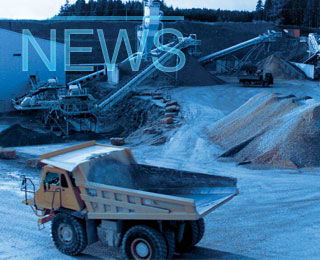BUA Cement’s pricing strategy has come under scrutiny as part of the ongoing debate over high cement prices in Nigeria.
Abdul Sam Rabiu, chairman of BUA Cement, addressed the issue at the company’s 8th annual general meeting in Abuja, Nigeria. He attributed the escalating cement prices to middlemen, who have been selling cement at bag prices far above the intended NGN3500 (US$2.19), with some selling for as much as NGN8000.
Mr Rabiu noted, “We were selling cement at NGN3500 with the expectation that dealers and retailers would pass the benefits of the low price to end-user customers, but some were selling at NGN7000 and NGN8000 per bag, making a lot of money from the very high margin.” He added, “I think we sold more than a million tons at NGN3500 before we realised what the dealers were doing.”
Despite the chairman’s claims, several industry stakeholders have expressed their skepticism. Kayode Animashaun, a major player in the country’s cement business, argued, “The recent excuse advanced by the chairman of BUA Cement is unacceptable. There is no way dealers would buy at NGN3500 and sell at NGN8000. It is a feeble attempt at giving a dog a bad name to hang it.”
Ahmad Magaji, a stakeholder in the cement distribution value chain, echoed this sentiment, saying, “There is no way dealers would get a bag of cement for NGN3500 and sell for NGN8000. It is absurd.”
BUA Cement’s critics suggest that the company’s pricing policy might have been a strategic move to gain market share.
The broader economic context, including the devaluation of the naira and the removal of the fuel subsidy, has also contributed to the unsustainability of BUA’s low-price strategy. Rabiu acknowledged that these factors made it impossible to continue selling cement at NGN3500 per bag. He stated that, “Because of the issues Nigeria faced at the time, such as the devaluation of the naira and the removal of the fuel subsidy, we could not continue that policy. We wanted the price to stay at that level, but dealers refused.”
The controversy surrounding BUA’s pricing strategy has led to calls for the company to apologise. Several dealers and stakeholders argued that the Nigerian cement producer raised public expectations that were not met.
The controversy highlights the ongoing challenges in Nigeria’s cement market, where the high cost of building materials continues to worsen the country’s housing deficit. The International Human Rights Commission reported last year that more than 28m Nigerians lack access to decent and affordable housing. With the average bag price of cement increasing from NGN4300 in May 2023 to NGN7500-8000 by May 2024, the situation has only worsened. Industry experts have expressed concerns that this trend may force more Nigerians to settle for substandard living conditions.
